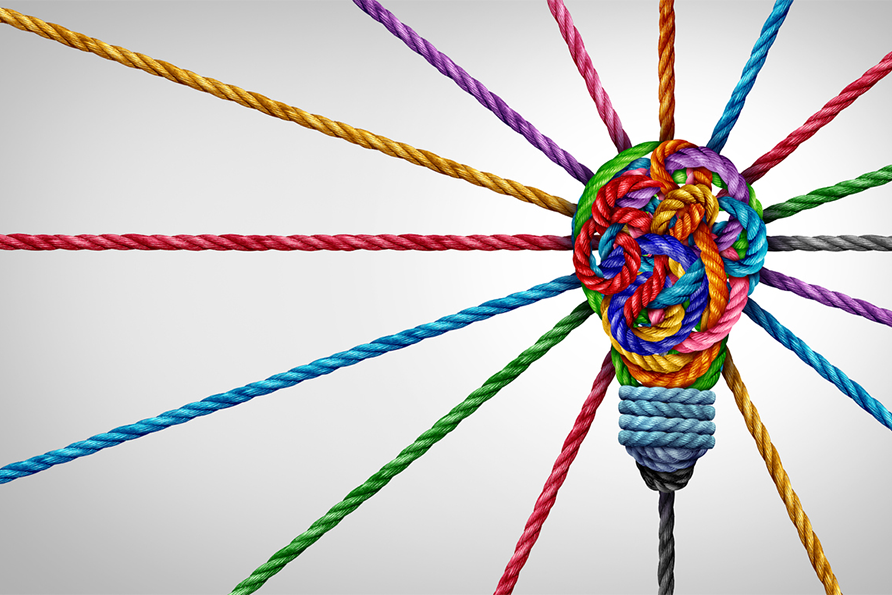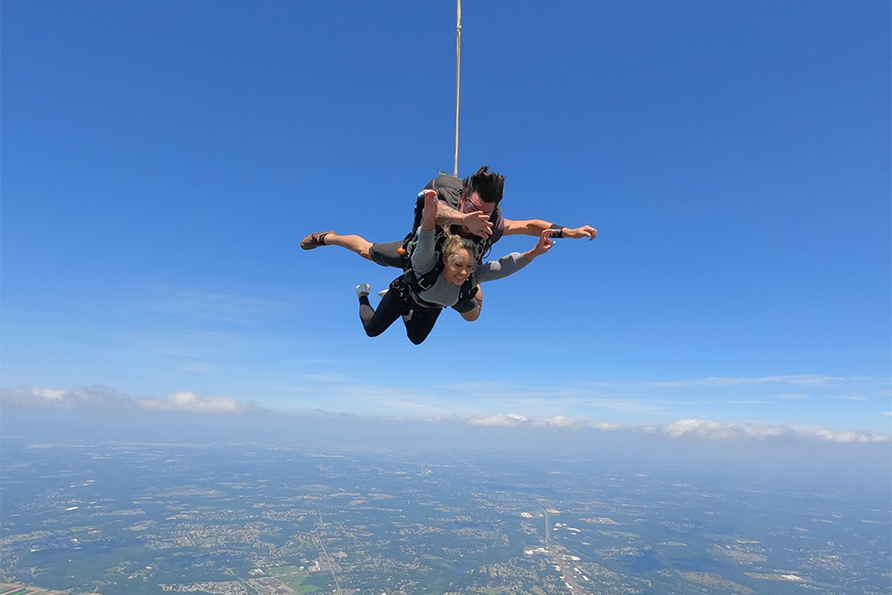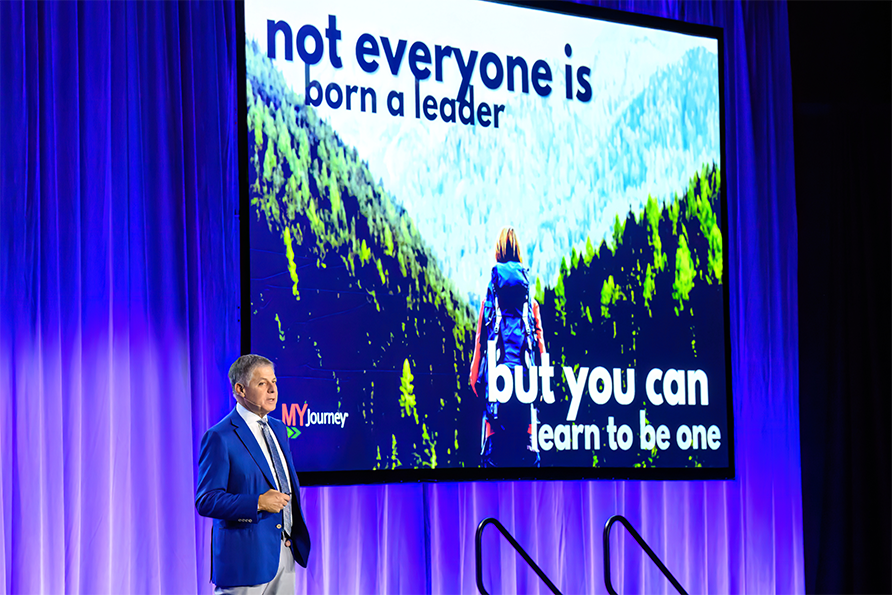Silence carries a strong stigma. It is seen as crippling, rude, and worst of all, weak. But, why is this? I may be one of the few who values silence. I see the beauty and power in its pure nothingness and the opportunities that hide behind it. It offers a pause to the bustling world, allowing for self-reflection and growth.
From self-reflection and growth stem fresh perspectives. These new perspectives could be the answer to a long-debated question with seemingly no solution in sight. It is critical to take these pauses, not only for our personal development, but for our professional development as well. And to have a true impact we must not only recognize the beauty in the silence, but capitalize on its vast opportunities.
However, to do so, we must first truly understand its meaning. What better way to learn the secrets of silence than through the perspective of the heavily biased and isolated group of quiet individuals referred to as introverts?
Introverts are seen as being quiet or shy, attributes that are commonly perceived as weaknesses. But this is an extremely surface-level way to look at a group of people who make up one-third to half of the population. So then, why don’t more of us take the time to understand these unique individuals truly? If we did, we would learn more about our own tendencies, create greater self-awareness, and find areas within ourselves where we have room to grow.

Oversimplifications
The distinction between introversion and extroversion lies within how you get your stimulation, or, more simply put, when you feel the most alive. Is it when you are out at a crowded bar and meeting new faces? Or is it when you are lying in bed quietly reading one of your most beloved books? Social interactions are draining for an introvert but the fruit of life for an extrovert. In contrast, extroverts find alone time crippling, but for an introvert, solitude is what feeds the soul.
This is where stigmas and stereotypes arise. Society yearns to group each of us into distinct, finite groups in a dire attempt to eliminate uncertainty. We must somehow fit at this end or that end of the spectrum: either introverted or extroverted. Fluidity is sacrificed for conformity. This stereotypical grouping strips us all of the very root of our humanity: our uniqueness.
There is no such thing as a pure introvert or even a pure extrovert. In fact, many scholars would argue that we all have a streak of introversion that runs within us. I am personally quite aware of these streaks that run deep within my own personality. Yet, I still do not feel the need to classify myself as one group or the other. In my eyes, such classifications can lead to containment and ultimately limitations of my self-growth.
Secret weapons
These streaks of introversion are often deemed as imperfections that we must overcome. But what if we looked at them as streaks of beautiful art? If we adapted a more accepting and free flowing perspective, then maybe we would begin to see how these unique marks are what make us the imperfectly, perfect humans that we are.
All of the characteristics of what make an introvert an introvert are seen as negatives. But what if we followed the introverts’ way by taking a step back and quietly observing? What would be seen is a group of avid listeners, analytical thinkers, and detail-oriented problem solvers.
Introverts tend to possess a high degree of humility which is also often linked to weakness. But really, humility is just recognizing that you are not the best. And it is not only just having this self-awareness; it is an innate desire to get better and constantly strive for excellence, both personally and professionally. Humility is a driving force for introverts and is a secret weapon in which we should all look to mirror to better ourselves and increase our teams’ aptitude.
The noise of biases often overpowers the strengths of introverted ways. This can be debilitating for many resulting in a sense of frustration due to a lack of opportunities spurring from lack of recognition. I encourage these individuals to own their secret weapons and not lose their quiet confidence, but rather utilize it in proving people wrong.
I also encourage others to give the more introverted people in your lives this opportunity to do so. They are active listeners who tend to be more empathetic and inclusive while also spurring new innovation through fresh and unique perspectives rooted in their reflective and analytical nature. It is a significant loss not to incorporate these humbly, meticulous, and motivated workers into your teams.

Keys to success
So, as an introvert, how do you give yourself this opportunity to unleash your highest potential? It can be challenging to muster up the confidence to introduce yourself to a new person, making networking, let alone doing an interview, difficult. But, as humans, if we want to reach our fullest potential, we must push ourselves to journey outside our comfort zones.
One particular key to this is acknowledging your strengths. Remind yourself of who you are and all that you bring to the table. As an introvert, you may not like to toot your own horn to others. But, being able to sell yourself is critical to landing a job and advancing in your career. Capitalize on your quiet confidence through highlighting the unique intangibles that differentiate you and make you a game-changing addition to any team.
Another key is preparation. Do your research on who you will be speaking with before any interviews or big meetings. Utilize platforms like LinkedIn to allow yourself to get to know the hiring managers (or whomever you will be speaking with). Use your detail-oriented nature and resources to find distinct personable connections, helping illuminate not only your strengths but also your personality.
Finally, take advantage of your select opportunities to showcase your skills and abilities. As an introvert, you naturally do better through actions rather than words. When given the opportunity to submit an example of your work, don’t let it go to waste. If you aren’t given the stage to show off your talent, create your own to exhibit your initiative and confidence.
A fluid spectrum
There is no right or wrong end to the spectrum. By embracing its fluidity, we can unlock the secrets of silence and become one step closer to actualizing our full potentials. When we can recognize that we do not all operate in the same zones of stimulation, we will perform at a higher level personally and help others achieve extraordinary results. Wherever you fall on the spectrum, embrace it and dig deep within yourself to learn more about how you best thrive so that you can make a better world around you.









